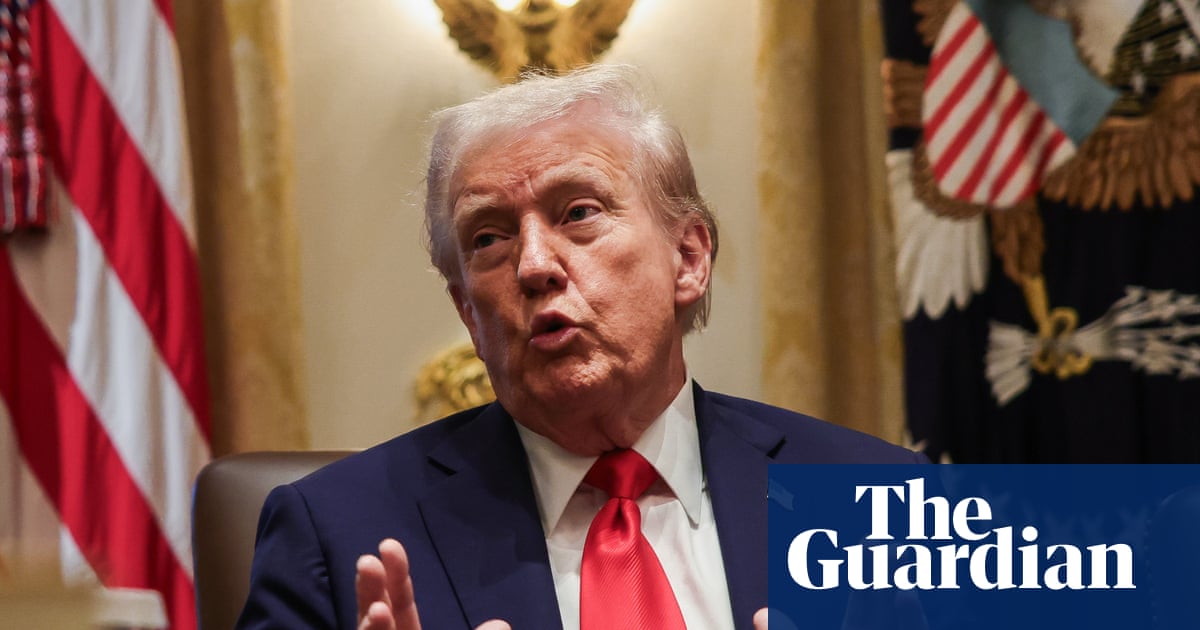With days left before journalists covering the Pentagon must sign on to a new set of guidelines to retain physical access to the department, major US news companies – and organizations representing their interests – remain concerned about specific policies they fear will stifle independent reporting on the Pentagon.
The Trump administration has been accused of preparing to impose severe limitations on the ability of journalists to cover the Pentagon and publish information that had not been officially approved for release.
An “in-brief for Media Members” that updated an earlier set of policies, released last month, drew strong condemnation from media companies and groups advocating for press freedom. On Monday, the Pentagon sent out a revised version.
On Wednesday, the Pentagon Press Association, which said it has been “cautious” in communicating about the policy as it worked behind the scenes, said the changes made – including an acknowledgment that signees may not “agree” with the policies – are not sufficient.
In particular, the revised policy still prohibits journalists from the “solicitation” of information from Pentagon employees, “such as public advertisements or calls for tips encouraging [Department of War] employees to share non-public [Department of War] information”. Journalists fear that policy could infringe on their ability to seek information about the agency from employees.
Donald Trump recently signed an executive order to change the name of the defense department to the Department of War. This would require approval from Congress to become official.
“We acknowledge and appreciate that the Pentagon is no longer requiring reporters to express agreement with the new policy as a condition for obtaining press credentials,” the Pentagon Press Association said in a statement. “But the Pentagon is still asking us to affirm in writing our ‘understanding’ of policies that appear designed to stifle a free press and potentially expose us to prosecution for simply doing our jobs.”
The Reporters Committee for Freedom of the Press (RCFP), which has worked behind the scenes to relax the policies, said the changes don’t go far enough.
“The fact is we still have concerns with the updated language of the policy and expect that it will pose a significant impediment as journalists weigh with their employers whether or not to sign this revised version,” Gabe Rottman, the RCFP vice-president of policy said on Wednesday.
PEN America, an organization that advocates for free expression, also said Thursday that the Pentagon should “revisit” its policies. “National security is strengthened, not threatened, when journalists can investigate and report without fear,” Tim Richardson, PEN America journalism and disinformation program director said.
With the exception of CNN, which does not plan to sign the policy, most news organizations have been tight-lipped when asked whether they plan to sign by next week’s deadline or risk losing access to the Pentagon compound.
The New York Times said in a statement that it “appreciates the Pentagon’s engagement, but problems remain with the policy and we and other news organizations believe further changes are needed”.
A spokesperson for the Atlantic also said that it “[continues] to oppose the Pentagon’s proposed press policy”.
Pentagon representatives have been steadfast in rebuffing the protests of media organizations.
“Access to the Pentagon is a privilege, not a right and the Department is not only legally permitted, but morally obligated to impose reasonable regulations on the exercise of that privilege,” chief spokesperson Sean Parnell said in a post on X, denying that journalists will be forced to “clear stories” with the agency before publication.
Kingsley Wilson, the Pentagon press secretary, said in her own post that “reporters would rather clutch their pearls on social media than stop trying to get warfighters and [Department of War] civilians to commit a crime by violating Department-wide policy.”
In its statement on Wednesday, the Pentagon Press Association called on the agency to reconsider the policies in the remaining days before journalists are asked to sign them.
“Limiting the media’s ability to report on the US military fails to honor the American families who have entrusted their sons and daughters to serve in it, or the taxpayers responsible for giving the department hundreds of billions of dollars a year,” the group said. “The American people deserve to know how their military is being run. They deserve more information from this administration, not less.”

 German (DE)
German (DE)  English (US)
English (US)  Spanish (ES)
Spanish (ES)  French (FR)
French (FR)  Hindi (IN)
Hindi (IN)  Italian (IT)
Italian (IT)  Russian (RU)
Russian (RU)  5 hours ago
5 hours ago
























Comments